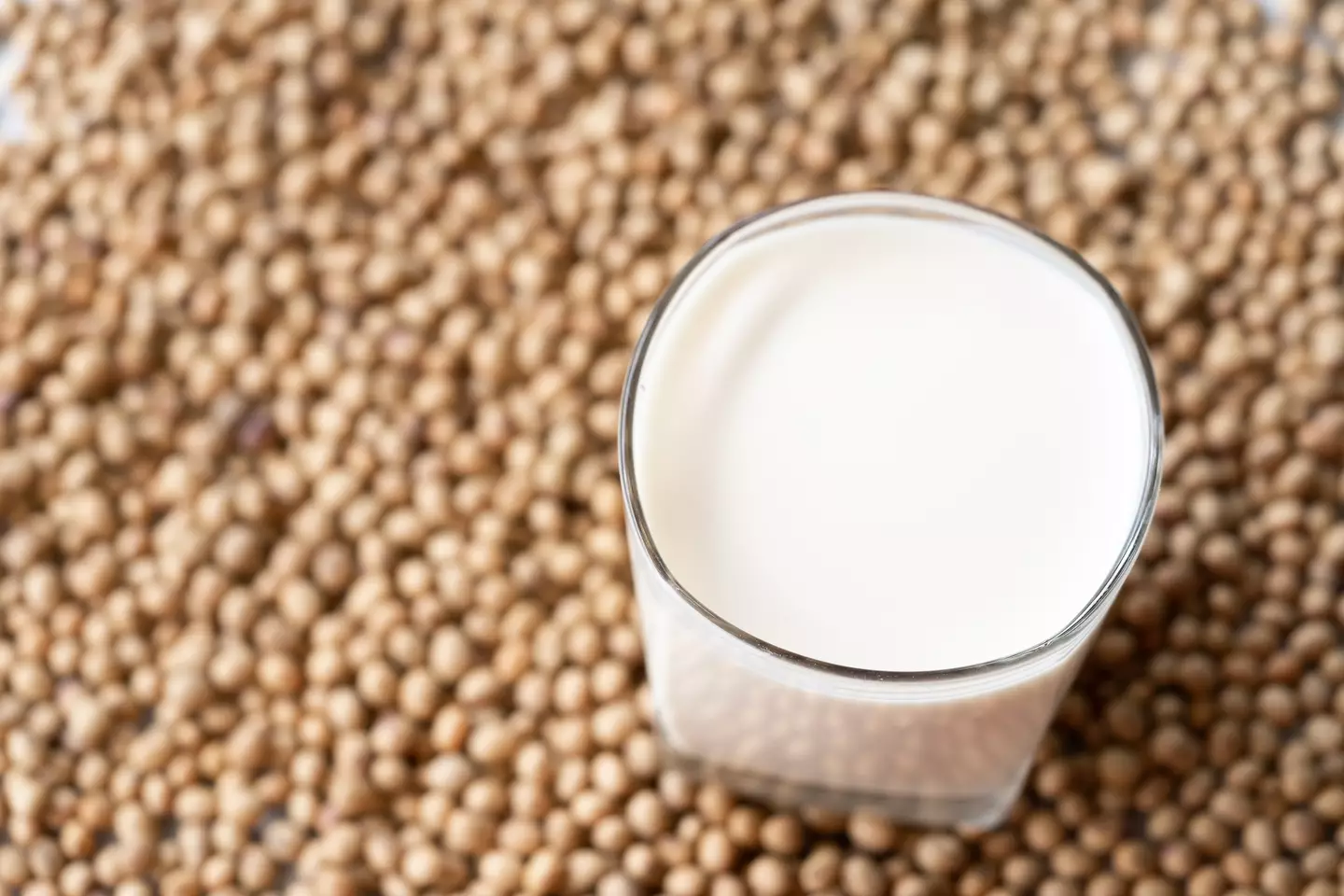
We live in an era where people are increasingly curious about what’s in their food. While that’s generally a good thing, it’s also an open goal for misinformation, fearmongering and unsubstantiated nonsense.
Social media is also awash with certified doctors making outlandish claims about health, and as this debate between YouTube’s Doctor Mike and the controversial Doctor Steven Gundry shows, doctors can have strongly conflicting opinions on what is and isn't good for us.
Nevertheless, while you’re looking to make informed decisions about what to include in your diet, seeking opinions from the medical community isn’t the worst idea, but seeking out second and third opinions is very much recommended.

Advert
That brings us to the meat of this article: Dr Eric Berg, a physician from the US, has detailed seven foods that he views as “basically poison”.
As many Brits will proudly proclaim, our food regulations are much more stringent than those in the US, especially around additives, so factor that into Dr Berg’s assessment of the foods in question.
"These foods are promoted as healthy but in reality, behind the scenes, they are not healthy at all," he said in a YouTube video. "In fact, they're gonna make you sick."
Let’s dive into the list.
Granola Bars
Dr Berg starts by taking aim at granola bars, pointing to the “bioengineered food ingredients” regularly noted on US bars’ packets.
"It means that they have GMO ingredients," Dr Berg said. Genetically modified ingredients aren’t inherently bad for you, of course, as detailed by the World Health Organisation.
He also points to “levels of glyphosate", which is a herbicide that has been linked with various cancers.
He goes on to detail their beet sugar “which is GMO” – and, again, that doesn’t mean it’s automatically bad for you – and “not very healthy” sunflower oil which he claims can cause “a lot of problems on the inside of your body".
The bars he’s talking about also include rice flour, which has high levels of starch.
"When you're dealing with starch, you're really dealing with sugar," the doctor said.
"That's what starch is, it's a group of sugar molecules connected together…one serving size [of granola bars] equals just under seven teaspoons of sugar."
By this measure, potatoes, rice and grains, also rich in starch, are scary sugar bombs. Make of that what you will.
Agave
This common honey substitute came under fire next.
"It sounds very natural but, every time they make a product into a syrup, especially agave, you're going to create more fructose," Dr Berg said, referring to a higher concentration of fructose than what is found in the agave plant.
This is analogous to the fact that fruit juices typically contain much more fructose than an equivalent serving of the whole fruit. For example, one apple is a serving, but several apples’ worth of material, and sugar, will go into one glass of apple juice.
"Agave syrup is literally 85 percent fructose," he said.
"Your liver treats fructose like it does alcohol, like a toxin." Of course, treating things like toxins and flushing them out of our system is very much the liver’s job.
Flavoured yoghurts
"Yoghurts have more sugar than a candy bar," said Dr Berg, adding that they also often contain thickeners, modified corn starch, and monosodium glutamate (MSG).
This latter ingredient, MSG, has long been considered bad for us, but recent studies show it’s actually perfectly safe for us to consume in moderate amounts.
If you’d rather steer clear, Dr Berg recommends eating kefir instead, saying it has “way more friendly bacteria” than flavoured yoghurt.
Non-dairy creamers
"There is a lot of crap in these things," Dr Berg says of artificial creamers, or whiteners as we occasionally call them in the UK.
Here he points to high-fructose corn syrup, glucose syrup, and maltodextrin as the Big Bads to watch out for, whilst also noting “hidden” trans fats.
These trans fats are hidden in the sense that there’s so little of them in the product that their volume can be rounded down to zero.
Soy milk

Dr Berg ventures into some disingenuous territory here, first getting into unhelpful semantics over why it’s called milk at all before saying it has “oestrogenic effects”.
Anyone who’s heard the term ‘soy boy’ will know this is a common trope of anti-vegan campaigners who suggest that soy products ‘feminise’ men.
While soy does contain oestrogen-adjacent compounds that similarly affect the body, these are far weaker than oestrogen. It’s important to also note that men naturally produce oestrogen too, and a lack of it has been shown to have negative health consequences.
The example Dr Berg cites from his own experience came from a male patient who supposedly began developing breasts whilst drinking "gallons" of soy milk each week. Even though this patient was clearly an outlier in his soy milk consumption, let's not let that get in the way of a bit of soy bashing.
In short: no, moderate consumption of soy products isn't ‘feminising’ anyone, and those oestrogen-adjacent ingredients probably aren’t having much, if any, effect on your body that your natural oestrogen levels aren’t already causing.
Dr Berg goes on to say that soy products are produced in an unhealthy manner, but unfortunately he doesn’t elaborate on what that means other than name-dropping a few steps in the process.
Fast food salads and lettuce
Next up, Dr Berg points to salads served in fast food places or otherwise covered in dressings. Taking a generalised view, he says these dressings contain seed oils and trans fats, “another chemical cocktail”.
These salads may also contain preservatives to prevent them from browning, which he also says is cause for concern.
Puffed cereals
Last on this list were puffed cereals, with Dr Berg citing a study that saw rats die prematurely when they were fed them.
He supposedly recreated the study for himself, and found that his test rats suffered from bulging red eyes and premature death when he fed them the puffed cereals. This was enough to swear him off puffed cereals too.
As Dr Berg is well aware: humans are not rats. When we test medicines and foods on rodents, their reactions may be analogous to our own, but we cannot assume they’re like for like.
Why? Because rats are rats and humans are humans. We’re both mammals, we share DNA, but we are not identical and we do not react to the world and the things in it in the same ways.
Such tests form a basis of understanding how we might also react to medicines and foods, but drawing absolute conclusions between what a rat experiences and what a human experiences is a scientific mistake.
We also have no extra information on the rats that Dr Berg supposedly tested for himself, such as their age, whether there was a control group, the general health of those rats, whether they had enough water and space, and whether they were exclusively eating puffed cereals. All of these factors are important and could each have an impact upon the results.
Puffed cereals may well be bad for us but, as far as scientific rigour goes, these rat-based claims are pretty weak.
